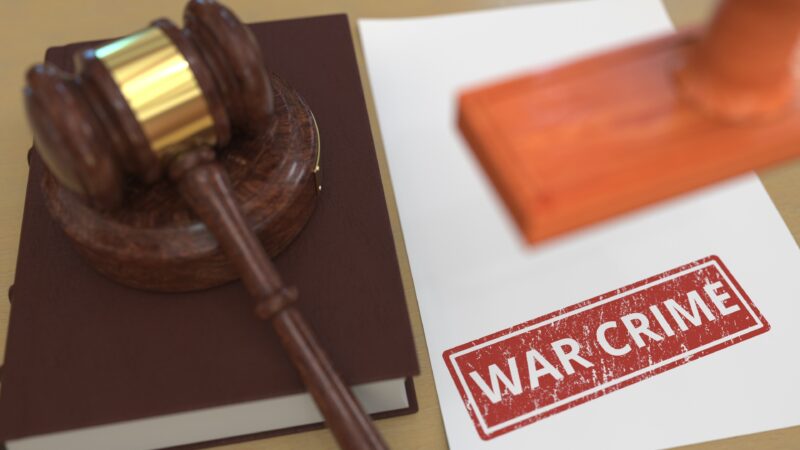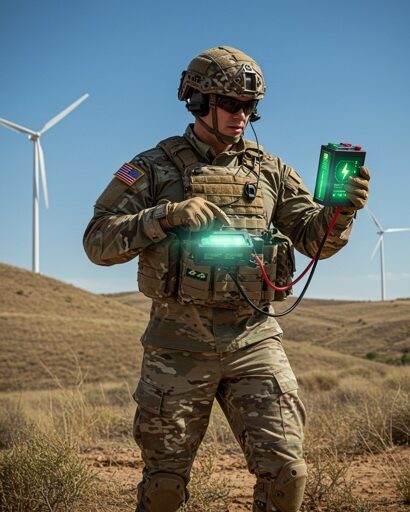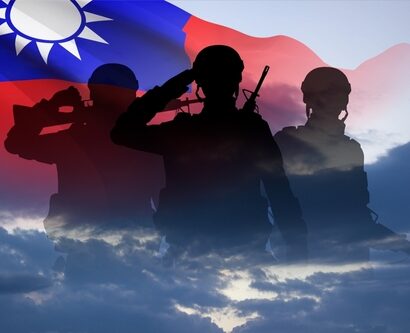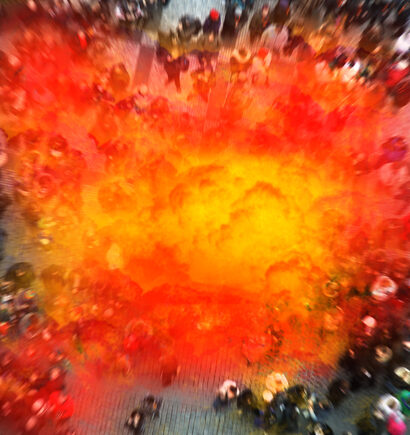Abstract: The present piece illustrates the ongoing conflict between the Russian Federation and the Ukrainian Republic over territorial claims. The article tests the involvement of war crimes in the current issue. Further, the article examines the legal aspects in terms of legal instruments like the United Nations Charter, the Geneva Convention, the Chemical Weapon Convention, and the United Nations Convention on the law of the sea. The Article scrutinizes the loopholes existing in international law and the working of legal machinery at the international level. The authors have attempted to portray a neutral and unbiased view of the current situation in the light of international law.
Problem statement: How are the international legal instruments getting involved in the conflict? How effective is the United Nations’ framework to tackle this issue? How does it affect individual rights?
Bottom-line-up-front: In the invasion of Ukraine, numerous international laws were allegedly violated by the Russian armed forces. It made them the target of several accusations of war crimes. War Crimes are horrific in nature and international law clearly lacks to adequately investigate and punish the wrongdoers in this situation. Despite the involvement of international legal machinery atrocious crimes and ongoing crisis still continue.
So what?: The existing jurisdiction of the ICJ is enough to tackle the issue, but due to its non-binding nature, ineffectiveness is obvious, resulting in numerous loopholes. The conflict needs a long-term solution that can be only arrived at through diplomatic talks and rounds of negotiation and arbitration. As the world is divided into two groups over the issue, a trusted and unbiased arbitrator like India can take charge in the resolution of the said dispute.
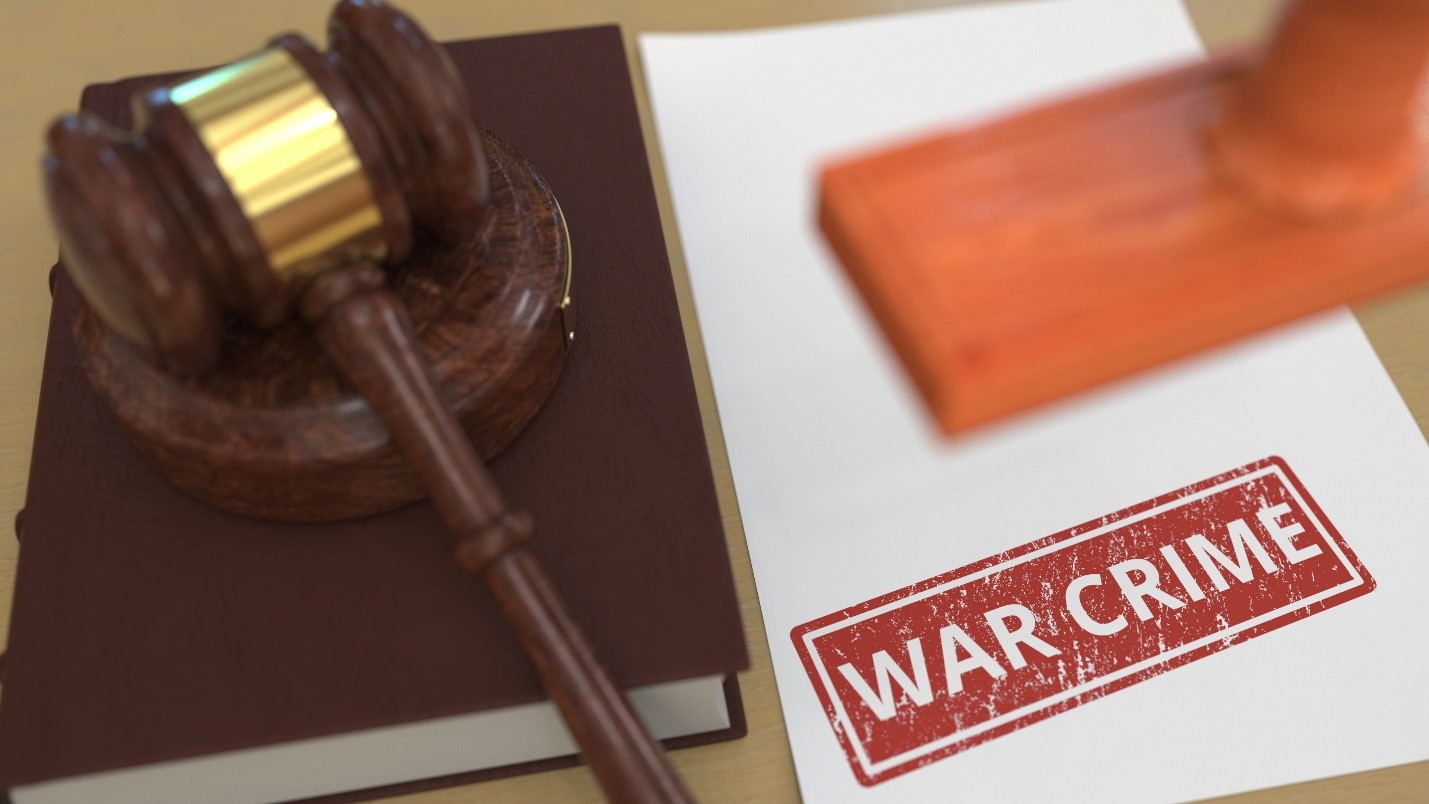
Source: shutterstock.com/max.ku
Outlining Ukraine’s Existence in Russia’s Neighborhood
Ukraine is an East European country with a past littered with discontinuities. During its development, the country faced significant eclipses. Since 32,000 BC, people inhabited the modern-day region of Ukraine. The area was an essential focus[1] of East Slavic civilization during the Middle Ages under Kievan Rus. For the next 600 years, the area was fought, partitioned, and dominated by external powers, including the Russian Tsardom. In the 17th century, the Cossack Hetmanate arose in Central Ukraine, but it was divided between Russia and Poland before being absorbed by the Russian Empire.
Ukrainian nationalism flourished[2] in the nineteenth century, particularly in Galicia. A Ukrainian national movement resurfaced against the backdrop of the Russian Revolution, and the Ukrainian People’s Republic was established in 1917. This short-lived republic was forcibly recreated as the Ukrainian Soviet Socialist Republic, which joined the Soviet Union (USSR) as a co-founder in 1922. The Soviet Union conquered Western Ukraine from Poland in 1939. After the Russian Soviet Republic, Ukraine was the most inhabited and newly industrializing republic.
With the collapse of the Soviet Union in 1991, Ukraine gained its independence and became a democracy. In 1994, it declared itself a neutral state and formed a limited military collaboration with Russia and other Commonwealth of Independent States countries, and became a partner of the North Atlantic Treaty Organization (NATO).
In 2013, the then Ukrainian President Viktor Yanukovych, under the influence of Russian soft power, abstained from signing the long-pending European Neighbourhood Policy (ENP) and a trade agreement with European Union (EU). The Euromaidan erupted in widespread protests and rallies developing into the Revolution of Dignity[3], which resulted in the formation of a new regime. Following these events, in 2014, Russia annexed Crimea citing oppression of ethnic Russian in the region which violated the territorial integrity of Ukraine. For a long, there has been an uprising for independence in the Donbas region against Ukrainian oppression of ethnic Russians as Moscow claims, culminating in the Russian invasion in February 2022.
The Euromaidan erupted in widespread protests and rallies developing into the Revolution of Dignity, which resulted in the formation of a new regime.
On February 21, 2022, Russian President Vladimir Putin signed[4] two directives to recognize the independence of the two regions Donetsk and Luhansk and presented them to the State Duma for approval. Following that, he ordered Russia’s armed forces to conduct “peacekeeping” in the self-proclaimed “Donetsk People’s Republic” (“DNR”) and “Luhansk People’s Republics” (“LNR”), which have been mobilizing near the Ukrainian border for months. On February 22, he declared publicly that the limits of the regions whose independence Russia has recognized extends to the larger sections (Oblasts) of the Donetsk and Luhansk regions under Ukrainian state control. On February 24, 2022, Russia launched[5] a ‘special military operation’ by invoking Article 51[6] of the UN Charter resulting in the biggest attack on Europe since World War II. Ukrainian forces defended their territory against Russian forces in the north, east and south.
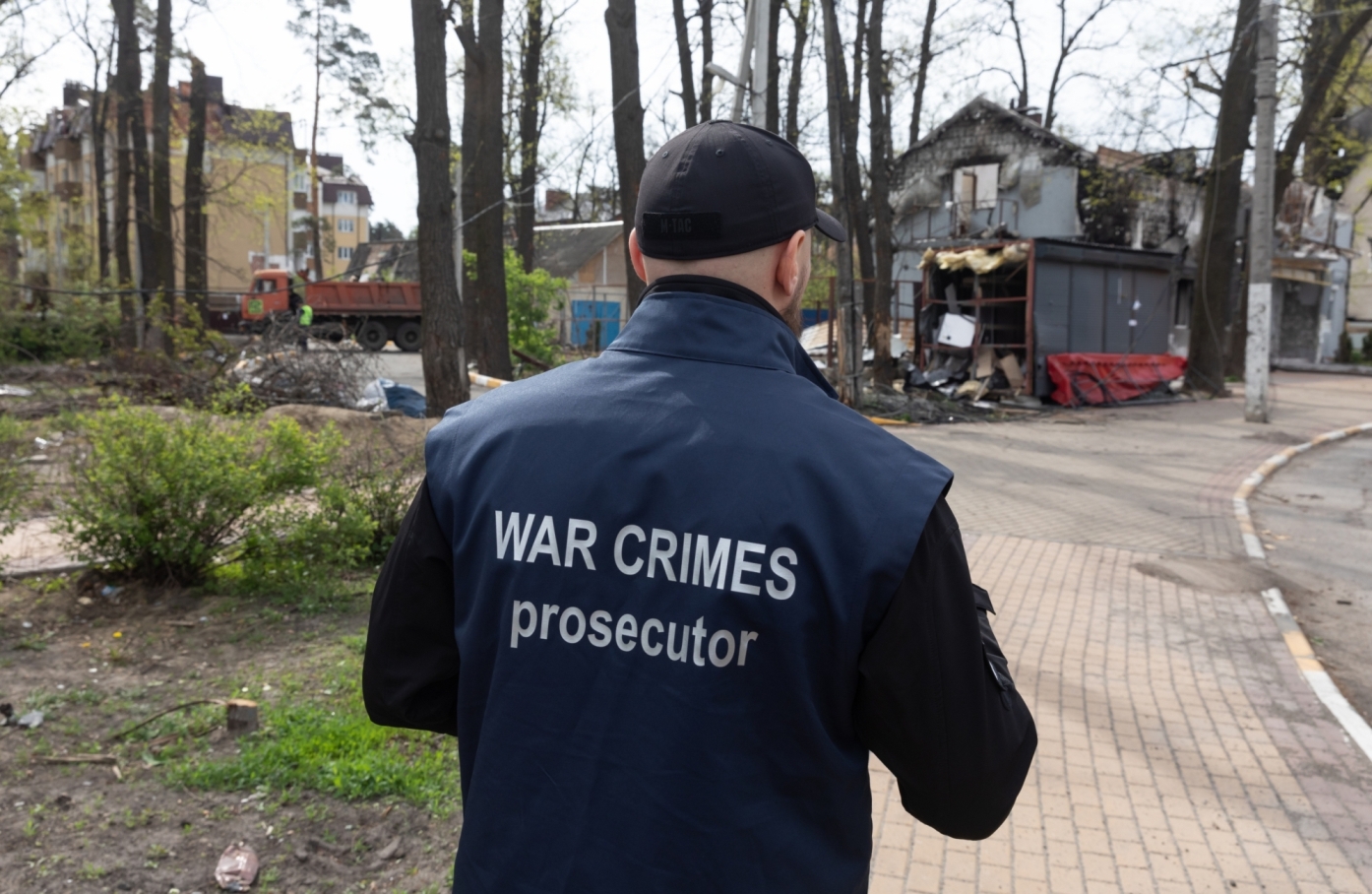
Source: shutterstock.com/Drop of Light
Is the West to Blame?
Despite the ongoing conflict with Russia, Ukraine has continued to pursue deeper economic, political, and military connections with the West and NATO. John J. Mearsheimer, a political scientist, also regarded as a theorist of International Relations in one of his writings, Why the Ukraine Crisis is the West’s Fault (2014)[7], raised the question of whether it is legitimate to attribute the crisis to the West. He emphasized the US and Western expansion of NATO as the main cause of Russian military operation in Ukraine, leading Russia to react and behave as it did.
Ukraine is not a NATO member. However, former Ukrainian President Leonid Kuchma expressed a desire[8] to join NATO in 2002, the primary purpose being increased military support. Ukraine’s defense capacity would be significantly strengthened if it were to join NATO. As a result, Russia’s reservations about Kiev’s membership in NATO disrupt the security calculus of Moscow, and therefore it demanded a guarantee that its neighbour will never be granted membership status. Russia resists the expansion of NATO and the West’s regional involvement. Putin claims[9] that NATO has breached a non-expansion treaty[10], but NATO refutes his claims. According to Moscow, NATO’s military interventions in Eastern Europe are being utilized by the West to encroach on Russia.
Ukraine’s defense capacity would be significantly strengthened if it were to join NATO. As a result, Russia’s reservations about Kiev’s membership in NATO disrupt the security calculus of Moscow, and therefore it demanded a guarantee that its neighbour will never be granted membership status.
How Substantial is the Situation in Context of International Law?
War on Ukraine is ‘Senseless in its scope, Ruthless in its dimension, limitless in the potential for global harm’, United Nations Secretary-General Antonio Guterres recently said[11] in UN Security Council.
The Charter of the United Nations
The United Nations Charter by Article 2[12]provides certain principles and establishes an obligation of erga omnes partes (towards all) which requires all states to refrain from threatening or using force in their international relations against any state’s territorial sovereignty or political independence, or in any other way that is contrary to the United Nations’ goals and to settle international conflicts through diplomatic and peaceful means. Also, Article 2 (2)[13] of the Charter requires all Members to fulfil bona fide the commitments they have assumed in compliance with the Charter to ensure that all countries get the rights and advantages deriving from it.
Furthermore, the invasion of Ukraine by Russia directly violates Article 2 (4)[14] of the United Nations Charter, which prohibits member states from using force against any state’s territorial integrity or political independence. Moreover, it prohibits not only the use of force itself but also all threats or use of unilateral force except with the explicit authorization of the Security Council in Chapter VII[15] and self-defence only in case of an actual and imminent attack or use of armed forces. Furthermore, Article 2(3)[16] stipulates that all members must work out their differences peacefully and without jeopardizing international peace. As previously stated, Russia had an empty right of self-defence because of the reason that no country attacked or used force against it. It also failed in settling the dispute primarily through peaceful means with Ukraine as advised in Article 33[17] of the UN Charter, nor did it have recourse with the Security Council first. Therefore, these operations are illegal since they are part of Moscow’s illegal war of aggression.
The claim made by Russian President Vladimir Putin and other Russian authorities that Russia’s use of force is legitimate under UN Charter Article 51[18] is ultra vires to its ambit. According to Article 51, “nothing in the present Charter shall impair the inherent right of individual or anticipatory self-defence if an armed attack occurs against a member of the United Nations.” Ukraine, in this case, has neither launched nor threatened to launch an armed assault on Moscow. Even if Russia could establish that Ukraine had perpetrated or attempted to conduct assaults against Russians in Ukraine administered Donbas region, such action in anticipatory self-defence would not fall under Article 51 since Donetsk and Luhansk are not UN-recognized states. Despite their putative separation from Ukraine and Russia’s acknowledgment of their independence, the Donbas region does not even qualify as a nation under international law. The interpretation of Article 51 was the source of the first widespread controversy. In the case of Nicaragua versus the United States[19], the International Court of Justice (ICJ)[20] laid down sine qua non (essentials) to the said Article. It seems Moscow has not fulfilled the essential requirements for invoking Article 51. Thus, the move was arbitrary.
Even if Russia could establish that Ukraine had perpetrated or attempted to conduct assaults against Russians in Ukraine administered Donbas region, such action in anticipatory self-defence would not fall under Article 51 since Donetsk and Luhansk are not UN-recognized states.
The invasion of Ukraine by Russia is a gross violation of one of International Law’s most revered and foundational principles, the prohibition of aggression. Aggression is defined in Article 3 of Resolution 3314[21], adopted unanimously by the UN General Assembly (UNGA) in 1974. Furthermore, since World War II, the international community has recognized that aggression perpetrated by higher-ranking military or government personnel is an international crime. In the Nuremberg trials[22], all but three of the defendants were found guilty of the crime of aggression, also known as a crime against peace, and were sentenced to ranging from ten years to death. The Tokyo Trial, like the Nuremberg Trial, declined to consider material beneficial to the defence that would appear to cast doubt on the Allied powers'[23] wartime conduct: the court merely said that its competence was limited to an investigation of the Japanese side’s actions. The court’s authority was carefully constrained by the Tokyo Trial’s[24] charter and rules of procedure. There was likely no legal basis for the tribunal to go beyond the objectives of those who convened the trial and granted it jurisdiction. This was completely accepted in the court’s decision. It was not enough for the defence in the Tokyo or Nuremberg Trials to establish that the actions of accountable officers or governmental officials and authorities were safeguarded as “acts of state.” The doctrine of “Act of State” is defined as an act that would otherwise be quantifiably wrong and can be authorized or adopted by a government in such a way that it becomes an “Act of State” for which no individual is personally liable and for which the government can only be held accountable by its grace or through international redress. In the conviction of war criminals, the twin notions of individual criminal responsibility and universal jurisdiction were firmly established.
The Geneva Convention
The Ukraine-Russia crisis has brought forward the mention of the Geneva conventions[25] as of 1949, a set of four conventions and three additional protocols agreed to be adhered to during all times, including that of war and armed conflict. The conventions saw a series of changes and developments, including a convention specifically for protecting civilians during the war. About 196 countries, including all 193 UN members, are signatories to the Geneva conventions. However, it is not the case with the 3 additional protocols. They have been ratified by 174, 169, and 79 countries, respectively. The USSR ratified the Geneva Convention in 1954.
Invaded parts of Ukraine are considered occupied territories[26] of the Russian Armed Forces, under International Law, including the Geneva Conventions, regardless of any self-proclaimed label. The circumstance of Russian troops formally entering the territory comes under the definition of occupation in the Fourth Geneva Convention[27], 1947.
The acts that would constitute grave violations of the agreement are defined in Article 147[28] of the Convention. Allegations have been levelled against Russia for violating the Geneva conventions. Several incidences have emerged in which Russia is accused of various heinous crimes such as torture, the wilful slaughter of people, rape, harsh treatment, unlawful deportation, kidnapping hostages, extensive unjustifiable destruction of property, wilful infliction of considerable suffering and bodily harm. The clauses also call for anyone who ordered or committed these violations to face criminal charges.
Several incidences have emerged in which Russia is accused of various heinous crimes such as torture, the wilful slaughter of people, rape, harsh treatment, unlawful deportation, kidnapping hostages, extensive unjustifiable destruction of property, wilful infliction of considerable suffering and bodily harm.
Russia was a signatory to the three additional protocols in addition to the Geneva Convention. However, in 2019, it withdrew[29] its declaration under Article 90[30] of the first additional protocol. Said article invested the international fact-finding commission with the power to investigate the alleged charges of grave breaches or serious offences committed in contraventions of the Geneva conventions or the protocols thereof during the war. However, with Russia withdrawing its declaration[31] provided under the article, the commission is not empowered to investigate the alleged violations.
Further, the bombardment[32] of the children’s hospitals and maternity wards in the cities of Mariupol by the Russian soldiers was also reported. As per the World Health Organisation[33] (WHO), more than a hundred hospital facilities have been attacked since the Russian invasion. This is a gross violation of Article 18[34] of the convention, which provides protection to civilian hospitals nursing infirm, wounded, and maternity cases from attack by the adversary. However, Russia’s take on this is different. It has refuted the claims highlighting that the hospitals bombed were out of order and vacated facilities occupied by the Ukrainian military.
The Bucha killings[35] were one such mind-boggling episode that came to light. Around 400 remains were discovered in the village of Bucha, which was under Russian administration, located 25 kilometres from Kyiv. The satellite photographs revealed the deplorable conditions in which the remains were discovered. Several victims were tied together, mutilated hands were found near the bodies and mass graves were discovered. At the UN Security Council meeting, Ukraine labelled it the biggest war crime since World War II and demanded an inquiry and punishment for the perpetrators of the Bucha massacre. Globally, world leaders have denounced the atrocity. However, Russia has refuted the allegations by claiming they were made to malign Russia. According to the Russian Defence Ministry, the Russian troops left the town of Bucha on March 30, several days before the images of the abominable slaughter surfaced. In addition, Russia has alleged that the atrocities in Bucha were fabricated[36] by the Ukrainians and called for the meeting of the UNSC to table its narrative.
At the UN Security Council meeting, Ukraine labelled it the biggest war crime since World War II and demanded an inquiry and punishment for the perpetrators of the Bucha massacre.
The use of sexual abuse as a war instrument is not a recent phenomenon and dates to earlier times. The most vulnerable and exposed to such sexual assaults are women and children. Employment of such means of warfare even today in the era of awareness and recognition of human rights is blatantly astounding. In 2019, The UNSC adopted a resolution calling for the cessation of sexual violence as a weapon of war. However, it can be inferred from the reports of rape and sexual assaults emerging from the state of Ukraine that the provisions have not been adhered to. Instances of rape and sexual violence were confirmed by Ms Kateryna Cherepakha, a women’s rights activist and the President of La Strada, a civil rights organization in Ukraine. Ms Kateryna Cherepakha, in her address[37] to the UN security council, raised concerns about cases of sexual abuse reported by women on the national hotline number of the organization. Protection has been granted by Article 27[38] of the Convention against attack on the honour of a protected person, their family rights, customs, and religious convictions. Special protection has been awarded to women against rape, any form of indecent assault, and enforced prostitution. In addition, the provision requires protected persons to be treated humanely and no violence or insults to be inflicted upon them. Despite the present provision, various reports of repeated rape and assault against Ukrainian women by Russian soldiers have come up.
Use of Chemical Weapons in Warfare
While the extent of Russia’s threat, aggression, and war crimes remains uncertain, unconfirmed reports[39] from the besieged city of Mariupol started surfacing in April 2022, claiming that Russia had used chemical weapons in its invasion of Ukraine. Members of the Azov battalion from Ukraine’s National Guard perceived[40] the imitation of White smoke from weapons dropped by the Russian army.
Any chemical substance that is dangerous to humans can be used as a weapon. This includes lethal substances created expressly for warfare. Due to their indiscriminate nature of destruction, the use of Chemical weapons has been banned internationally by an arms control treaty, the Chemical weapon convention, administered by the Organisation for the Prohibition of Chemical Weapons (OPCW) which has 193 Member States, including Russia and Ukraine, has stated[41] that it is monitoring the situation. Several countries have asked to launch an investigation, but it is not easy for any organization as it is hard to collect samples of these short-lived chemicals from the battleground. Russia has denied these severe accusations.
Due to their indiscriminate nature of destruction, the use of Chemical weapons has been banned internationally by an arms control treaty, the Chemical weapon convention, administered by the Organisation for the Prohibition of Chemical Weapons (OPCW) which has 193 Member States, including Russia and Ukraine, has stated that it is monitoring the situation.
The Black Sea Conflict and the Law of the Sea
The Black Sea has seen battles between Russian and Ukrainian forces, and some Russian naval assets have already arrived and have been heavily militarized. After Russia annexed[42] the Crimean Peninsula in 2014, or, as Russia claims, its entrance after a referendum, Ukraine filed multiple international proceedings against Russia, including two cases under the United Nations Convention on the Law of the Sea (UNCLOS)[43], Annexure-VII[44]: The Dispute Concerning Coastal State Rights in the Black Sea, Sea of Azov, and Kerch Strait in 2016[45]and The Detention of Three Ukrainian Naval Vessels in 2019[46].
The confrontation between Russia and Ukraine over the sovereignty of Crimea lies at the heart of these disagreements. Russia opposed the jurisdiction in all instances, using several UNCLOS exceptions, including the notion that the issue is over Crimea’s sovereignty, not just the interpretation or execution of UNCLOS. Although the Annex VII Tribunal upheld Russia’s objection that the core issue underlying Ukraine’s assertions was autonomy over Crimea and thus estopped under UNCLOS Article 288(1)[47], it rejected Russia’s concerns to jurisdiction on other reasons in the Coastal State Rights in the Black Sea, Sea of Azov, and Kerch Strait. ITLOS[48] approved interim orders and determined that the Annex VII arbitral tribunal would have prima facie competency in its ruling on Ukraine’s demand for interim relief. These cases significantly contribute to the current trend of lawsuits launched under the UNCLOS dispute resolution processes to resolve underlying contested sovereignty issues.
Cognizance of the International Criminal Court (ICC)
The Rome Statue[49] is the edifice upon which the ICC has been established. Alongside investigating grave crimes committed against the international community, it also wields power to indict individuals for the same. The fundamental issue is that neither Ukraine nor Russia is a signatory[50] to the Rome Statute, incapacitating them from reporting potential crimes to the court. Nevertheless, in 2015, the Verkhovna-Rada of Ukraine passed a declaration[51] explicitly recognizing the Court’s jurisdiction, extending the ICC’s authority in the present scenario. Subsequently, ICC’s prosecutor[52] initiated an investigation[53] into suspected war crimes in Ukraine that may be brought under ICC’s jurisdiction. However, there are intricacies involved as it will not be an easy task to bring Russia to the table after its rejection of ICC’s jurisdiction following its withdrawal from the Rome Statute[54] in 2016. The only way forward would be either that Putin is surrendered by the Russian military or is extradited by a country that accepts the jurisdiction of the ICC. Considering the existing predicament, neither of the above propositions has a possibility of happening in the distant future.
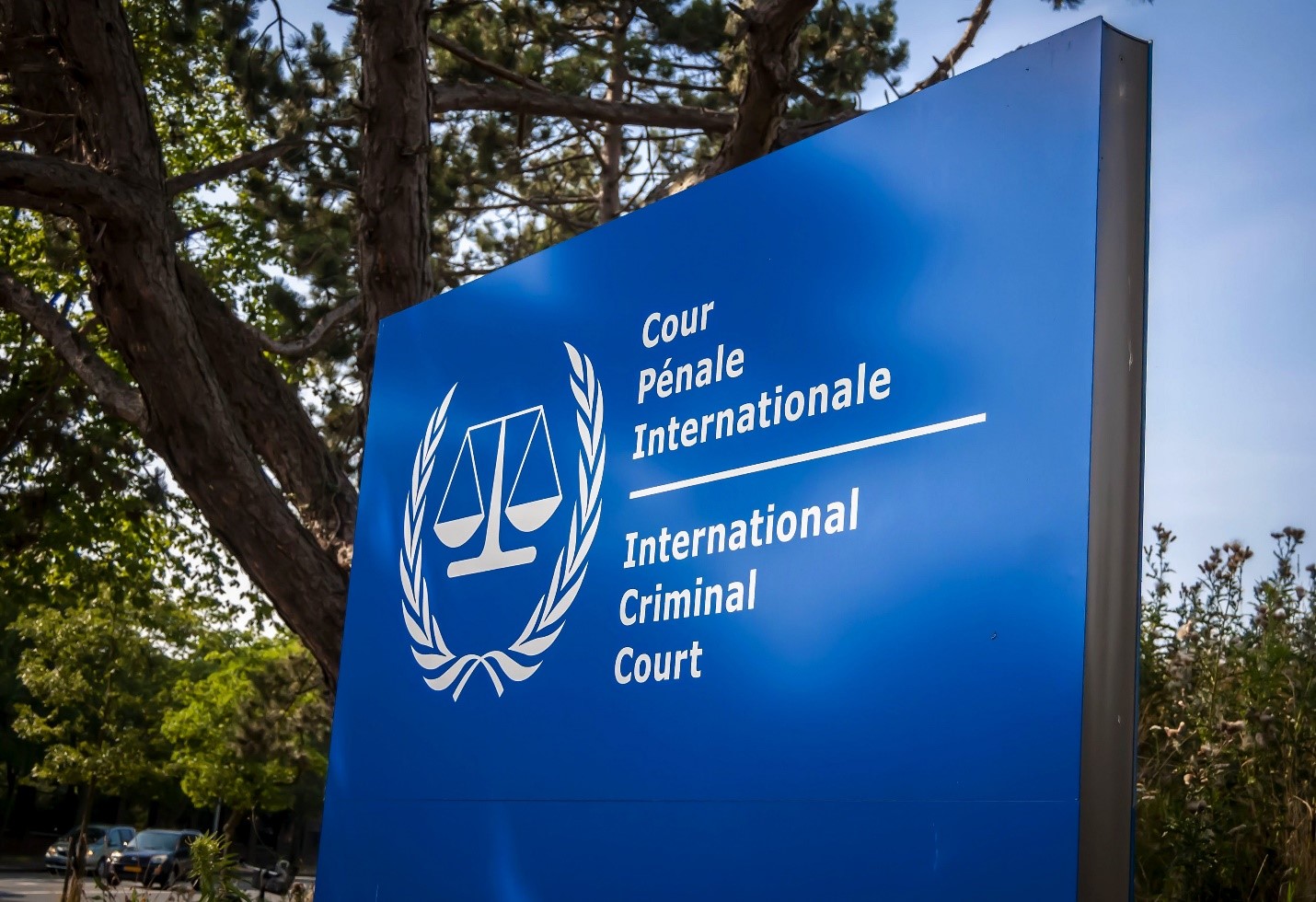
Source: shutterstock.com/Roman Yanushevsky
A Chink in the Legal Armour
There has been repeated emphasis on the point that ‘the obligation of impartiality imposed by general international law upon neutral states[55] is superseded by the UN Charter. We might deduce that the UN Charter’s construction was inadequate from its inception, as there is undeniably a gap in the United Nations collective security mechanism. In recent times, the flaw can be seen in the case of the Russian invasion of Ukraine.
The UN Charter has endued the UNSC with the primary responsibility for maintaining peace and security but not with the exclusive responsibilities. In the event that force was put to work in violation of the restrictions, the UNSC has to identify the aggressor and recommend or decide upon a course of action[56] which should be executed to restore international peace. However, there is a shortcoming because the permanent members of the UNSC have veto power. If one of the five permanent members committed an act of aggression, that member’s veto power might prevent the council from acknowledging the aggressor and acting for peace restoration. Taking advantage of this shortcoming, Russia vetoed a draft resolution[57] supported by 11 Council members at the 8979th meeting of UNSC[58]. The resolution was about Russia’s aggression against Ukraine in violation of Article 2(4)[59] of the UN Charter, to immediate cessation of use of armed forces and unconditional and complete withdrawal of the military forces from Ukraine.
If one of the five permanent members committed an act of aggression, that member’s veto power might prevent the council from acknowledging the aggressor and acting for peace restoration. Taking advantage of this shortcoming, Russia vetoed a draft resolution supported by 11 Council members at the 8979th meeting of UNSC.
It is simpler to blame a war crime on the soldier who committed it rather than the commander who gave the orders. The commanders, the head of state, and the soldiers may be accused of a war crimes inquiry. If successful, the prosecution can provide proof that Russian President Vladimir Putin or another state authority ordered an unlawful strike. They can also be held accountable if they were aware of the crimes and did nothing to stop them, as in the Tokyo Trials.
If the prosecution can establish that war crimes were committed, the ICJ will issue a subpoena. The prosecutor must also show the defendant’s guilt beyond a reasonable doubt to establish charges. The ICJ can only rule on disputes between nations and cannot punish persons. Ukraine has filed a lawsuit against Russia. If the court decides against Russia, the UNSC will be responsible for executing the ruling, but as one of the council’s five permanent members, Russia may veto any motion to censure it.
A week after Russia’s invasion, the UNGA overwhelmingly adopted a resolution[60] (United Nations News 2022) to urge Russia to end its attack and withdraw all soldiers immediately. One hundred forty-one states voted in favour of the resolution, with five voting against it and 35 abstaining. Resolutions of the General Assembly are not legally binding but can reflect (United Nations News 2022) and influence global opinion. The international community, especially the European Union and US-led NATO, have come out supporting Ukraine. Aid in the form of military equipment is being sent to enhance the military capabilities of Ukraine. Organizations like WHO, UNICEF, and Amnesty International have severely condemned the invasion. The United Nations has convened several sessions, including emergency sessions, to discuss the unfolding crises. Various countries have imposed heavy sanctions on Russia to isolate the country from the rest of the world. All such measures and actions are undertaken to punish Russia for its actions and to set an example that international actions have repercussions, but the bigger question remains is it really affecting Russia? The series of events clearly indicate the failure of international law and the existence of deep-rooted loopholes in the system.
To sum up, “Never think that war, no matter how necessary, nor how justified, is not a crime.” This was articulated[61] by Ernest Hemmingway, a noble laureate who served in World War I. The contention put forward by Mr Hemmingway is steadfast in its aspects, as war has a long-term bearing not only on the civilian population of the countries involved but the economy. The commission of war crimes has led to humanity’s humongous misery and immense suffering. The UN’s Human Rights wing confirmed more than 3,700[62] civilian casualties as of May 18, 2022.
During the ongoing conflict, India, an important strategic partner of Russia, was called in to intervene to end the conflict. Even today, different countries pressurize India to take a firm stand against the crisis. Germany and other countries have also called upon India to aid in launching an investigation and bringing the culprit to justice. On the one hand, previous convictions like the incarceration of Herbert Hubner for 15 years for the deportation of the Polish, the capital punishment for Adolf Eichmann for Nazi war crimes, and for Saddam Hussein for the Dujail Massacre provide a ray of hope to the victims. On the other hand, the crimes committed in Syria and Afghanistan have been left unanswered and remain un-investigated.
Even today, different countries pressurize India to take a firm stand against the crisis. Germany and other countries have also called upon India to aid in launching an investigation and bringing the culprit to justice.
There is diverse consensus on whether the invasion was an open invitation or an unprovoked attack. Uncertainty lingers as to whether Russia would be held accountable for its action or will international law fail to redress its grave breaches, and the perpetrators will go free and unpunished.
The Authors are students of the faculty of law at Nagpur University. Saloni Sarda is a passionate writer and dedicated researcher. Pratik Karmarkar has a keen interest in international law and political issues. Shreya Kumari is a frequent observer of global politics and is inclined to learn about current international relations developments. The views contained in this article are the author’s alone and do not represent the views of Defence Horizon.
[1] Michael Ray, Britannica, accessed May 15, 2022, https://www.britannica.com/place/Donetsk-Ukraine.
[2] Denys Kiryukhin, E-International Relations, March 19, 2015, accessed May 13, 2022, https://www.e-ir.info/2015/03/19/roots-and-features-of-modern-ukrainian-national-identity-and-nationalism/.
[3] George Weigel, EPCC, February 28, 2022, accessed May 13, 2022, https://eppc.org/publication/the-revolution-of-dignity-lives-and-defends-itself/.
[4] Sugar Mizzy, Europe-Cities, February 22, 2022, accessed May 14, 2022, https://europe-cities.com/2022/02/22/putin-russia-recognized-dpr-and-lpr-on-the-borders-of-donetsk-and-luhansk-regions/.
[5] ORGANIZATION FOR SECURITY AND COOPERATION IN EUROPE – OSCE, Ukraine – Security Council, 8974th Meeting, New York, February 23, 2022, https://media.un.org/en/asset/k1j/k1j8unn1me.
[6] United Nations Charter, Chapter VII. n.d. “United Nations,” United Nations Official site, accessed May 14, 2022, https://www.un.org/en/about-us/un-charter/chapter-7.
[7] John J. Mearsheimer, “Why the Ukraine Crisis Is,” Foreign Affairs (2014) 1-12.
[8] Radio Free Europe/Radio Liberty, Radio Free Europe/Radio Liberty, September 05, 2021, accessed May 14, 2022, https://www.rferl.org/a/1097323.html.
[9] Russia Today, Russia Today, February 18, 2022, accessed May 14, 2022, https://www.rt.com/news/549921-nato-expansion-russia-document/.
[10] “NATO-RUSSIA AGREEMENT AND U.S.-RUSSIA TREATY,” Association of Accredited Public Policy Advocates to the European Union, January 21, 2022, accessed May 14, 2022, http://www.aalep.eu/nato-russia-agreement-and-us-russia-treaty.
[11] United Nations Press, War on Ukraine ‘Senseless in Its Scope, Ruthless in Its Dimensions, Limitless in Potential for Global Harm,’ Secretary-General Tells Security Council, Press Release 2022, New York: United Nations.
[12] United Nations, “Charter of the United Nations,” Codification Division, Office of Legal Affairs, © United Nations 2022, March 10, 2021, accessed May 15, 2022, https://legal.un.org/repertory/art2.shtml.
[13] Idem.
[14] Idem.
[15] United Nations Charter, Chapter VII. n.d. “United Nations,” United Nations Official site, accessed May 14, 2022, https://www.un.org/en/about-us/un-charter/chapter-7.
[16] United Nations, “Charter of the United Nations,” Codification Division, Office of Legal Affairs, © United Nations 2022, March 10, 2021, accessed May 15, 2022, https://legal.un.org/repertory/art2.shtml.
[17] United Nations n.d., “United Nations Charter, Chapter VI:.” United Nations, accessed May 15, 2022, https://www.un.org/en/about-us/un-charter/chapter-6.
[18] United Nations Charter, Chapter VII. n.d. “United Nations,” United Nations Official site, accessed May 14, 2022, https://www.un.org/en/about-us/un-charter/chapter-7.
[19] NICARAGUA v. UNITED STATES OF AMERICA, 1984, (International Court of Juctice (ICJ), 26 November).
[20] n.d. International Court of Justice, accessed May 15, 2022, https://www.icj-cij.org/en.
[21] “Definition of Aggression, General Assembly Resolution 3314,” Codification Division, Office of Legal Affairs, United Nations, December 14, 1974, accessed May 15, 2022, https://legal.un.org/avl/ha/da/da.html.
[22] n.d. “The Nuremberg Trials,” The National WW2 Museum, Nuremberg: The National WW2 Museum.
[23] John Graham Royde-Smith, Britannica, February 28, 2022, accessed May 16, 2022, https://www.britannica.com/event/World-War-II.
[24] John R. Pritchard, Encyclopedia, accessed May 16, 2022, https://www.encyclopedia.com/international/encyclopedias-almanacs-transcripts-and-maps/tokyo-trial.
[25] “Geneva Convention,” International Committee of the Red Cross, August 12, 1949, accessed May 16, 2022, https://www.icrc.org/en/doc/assets/files/publications/icrc-002-0173.pdf.
[26] COMMENTARY OF 1958. 1949. INTERNATIONAL COMMITTEE OF THE RED CROSS. 12 August. Accessed May 17, 2022. https://ihl-databases.icrc.org/applic/ihl/ihl.nsf/Comment.xsp?action=openDocument&documentId=62259F89D6497D91C12563CD0042C32E.
[27] INTERNATIONAL COMMITTEE OF THE RED CROSS, Convention (IV) relative to the Protection of Civilian Persons in Time of War, Geneva, August 12, 1949, accessed May 17, 2022, https://ihl-databases.icrc.org/applic/ihl/ihl.nsf/INTRO/380.
[28] Treaties, States Parties and Commentaries, August 12, 1949, accessed May 17, 2022, https://ihl-databases.icrc.org/applic/ihl/ihl.nsf/1a13044f3bbb5b8ec12563fb0066f226/659a26a51bb6fe7ac12563cd0042f063.
[29] Protocol Additional to the Geneva Conventions of 12 August 1949, and relating to the Protection of Victims of International Armed Conflicts (Protocol I), June 08, 1977, accessed May 17, 2022.https://ihldatabases.icrc.org/applic/ihl/ihl.nsf/Notification.xsp?action=openDocument&documentId=74BABBD71087E777C1256402003FB5D4.
[30] INTERNATIONAL FACT-FINDING COMMISSION, June 08, 1977, accessed May 17, 2022, https://ihl-databases.icrc.org/applic/ihl/ihl.nsf/Comment.xsp?action=openDocument&documentId=749BDBBD381E48A6C12563CD00437E6D.
[31] “Trying individuals for genocide, war crimes, crimes against humanity, and aggression,” International Criminal Court, February 28, 2022, accessed May 19, 2022, https://www.icc-cpi.int/news/statement-icc-prosecutor-karim-aa-khan-qc-situation-ukraine-i-have-decided-proceed-opening.
[32] Yaroslav Trofimov, The Wall Street Journal, March 01, 2022, accessed May 18, 2022, https://www.wsj.com/articles/in-a-kyiv-hospital-children-pay-the-price-of-russias-invasion-11646147353?mod=livecoverage_web.
[33] WHO, World Health Organisation, April 07, 2022, accessed May 18, 2022, https://www.who.int/news/item/07-04-2022-who-records-100th-attack-on-health-care-in-ukraine.
[34] Office of High Commissioner, “Geneva Convention relative to the Treatment of Prisoners of War,” OHCHR 1996-2022, October 21, 1950, accessed May 18, 2022, https://www.ohchr.org/en/instruments-mechanisms/instruments/geneva-convention-relative-treatment-prisoners-war#:~:text=Article%2018%20All%20effects%20and%20articles%20of%20personal,masks%20and%20like%20articles%20issued%20for%20personal%20protection.
[35] UN News, Bucha killings raise ‘serious’ questions about possible war crimes, April 04, 2022, accessed May 19, 2022, https://news.un.org/en/story/2022/04/1115482.
[36] Security Council 9013th Meeting, Maintenance of peace and security of Ukraine, Minute 2022, New York: Security Council Reports.
[37] Idem.
[38] COMMENTARY OF 1958, INTERNATIONAL COMMITTEE OF THE RED CROSS, August 12, 1949, accessed May 17, 2022, https://ihl-databases.icrc.org/applic/ihl/ihl.nsf/Comment.xsp?action=openDocument&documentId=62259F89D6497D91C12563CD0042C32E.
[39] BBC, Ukraine War, April 12, 2022, accessed May 19, 2022, https://www.bbc.com/news/world-europe-61077641.
[40] Natalie Colarossi, Newsweek, April 11, 2022, accessed May 19, 2022, https://www.newsweek.com/ukrainian-battalion-accuses-russia-using-chemical-weapons-civilians-1697052.
[41] OPCW, Statement on Ukraine from the OPCW spokesperson, April 12, 2022, accessed May 20, 2022, https://www.opcw.org/media-centre/news/2022/04/statement-ukraine-opcw-spokesperson.
[42] Polygraph.info, Moscow: Crimea is Russian, UN: It is occupied territory, May 11, 2018, accessed May 19, 2022, https://www.polygraph.info/a/crimean-annexation-baltic-state-independence/29221929.html.
[43] United Nations Convention on the Law of the Sea, November 16, 1994, accessed May 16, 2022, https://www.unclos.org/.
[44] “United Nations Convention on the Law of the Sea,” Permanent Court of Arbitration, November 16, 1994, accessed May 16, 2022, https://pca-cpa.org/en/services/arbitration-services/unclos/#:~:text=Pursuant%20to%20Article%20287%20%283%29%20of%20UNCLOS%2C%20arbitration,optional%20exceptions%20pursuant%20to%20Article%20298%20of%20UNCLOS%29.
[45] Ukraine v. the Russian Federation, 2017-06 (The Permanent Court of Arbitration, September 16, 2016).
[46] UKRAINE v. RUSSIAN FEDERATION, (INTERNATIONAL TRIBUNAL FOR THE LAW OF THE SEA , May 25, 2019).
[47] n.d. “United Nations Convention on the Law of the Sea,” United Nations, accessed May 17, 2022, https://www.un.org/Depts/los/convention_agreements/texts/unclos/unclos_e.pdf.
[48] n.d. INTERNATIONAL TRIBUNAL FOR THE LAW OF THE SEA, accessed May 17, 2022, https://www.itlos.org/en/main/latest-news/.
[49] OHCHR, Rome Statute of the International Criminal Court, July 17, 1998, accessed May 18, 2022, https://www.ohchr.org/en/instruments-mechanisms/instruments/rome-statute-international-criminal-court.
[50] n.d. Assembly of States Parties to the Rome Statute, accessed May 18, 2022, https://asp.icc-cpi.int/states-parties/states-parties-chronological-list.
[51] “Ministry of Foreign Affairs, Ukraine,” September 08, 2015, accessed May 19, 2022, https://www.icc-cpi.int/sites/default/files/iccdocs/other/Ukraine_Art_12-3_declaration_08092015.pdf.
[52] “Trying individuals for genocide, war crimes, crimes against humanity, and aggression,” International Criminal Court, February 28, 2022, accessed May 19, 2022, https://www.icc-cpi.int/news/statement-icc-prosecutor-karim-aa-khan-qc-situation-ukraine-i-have-decided-proceed-opening.
[53] International Criminal Court, March 09, 2022, accessed May 19, 2022, https://www.icc-cpi.int/ukraine.
[54] n.d. Assembly of States Parties to the Rome Statute, accessed May 18, 2022, https://asp.icc-cpi.int/states-parties/states-parties-chronological-list.
[55] n.d. United Nations, accessed May 22, 2022, https://www.un.org/en/observances/neutrality-day.
[56] United Nations Charter, Chapter VII. n.d. “United Nations,” United Nations Official site, accessed May 14, 2022, https://www.un.org/en/about-us/un-charter/chapter-7.
[57] United Nations Press, “SECURITY COUNCIL 8979TH MEETING,” United Nations Press. New York: Meetings Coverage and Press Releases. https://www.un.org/press/en/2022/sc14808.doc.htm.
[58] United Nations Press, “SECURITY COUNCIL 8979TH MEETING,” United Nations Press. New York: Meetings Coverage and Press Releases 2022, https://www.un.org/press/en/2022/sc14808.doc.htm.
[59] United Nations, “Charter of the United Nations,” Codification Division, Office of Legal Affairs, © United Nations 2022, March 10, 2021, accessed May 15, 2022, https://legal.un.org/repertory/art2.shtml.
[60] COMMENTARY OF 1958, INTERNATIONAL COMMITTEE OF THE RED CROSS, August 12, 1949, accessed May 17, 2022, https://ihl-databases.icrc.org/applic/ihl/ihl.nsf/Comment.xsp?action=openDocument&documentId=62259F89D6497D91C12563CD0042C32E.
[61] Ernest Hemingway, Goodreads, accessed May 25, 2022, https://www.goodreads.com/quotes/7140760-never-think-that-war-no-matter-how-necessary-nor-how.
[62] Office of the High Commissioner, United Nations Human Rights Commission, May 18, 2022, accessed May 25, 2022, https://www.ohchr.org/en/news/2022/05/ukraine-civilian-casualty-update-18-may-2022.


